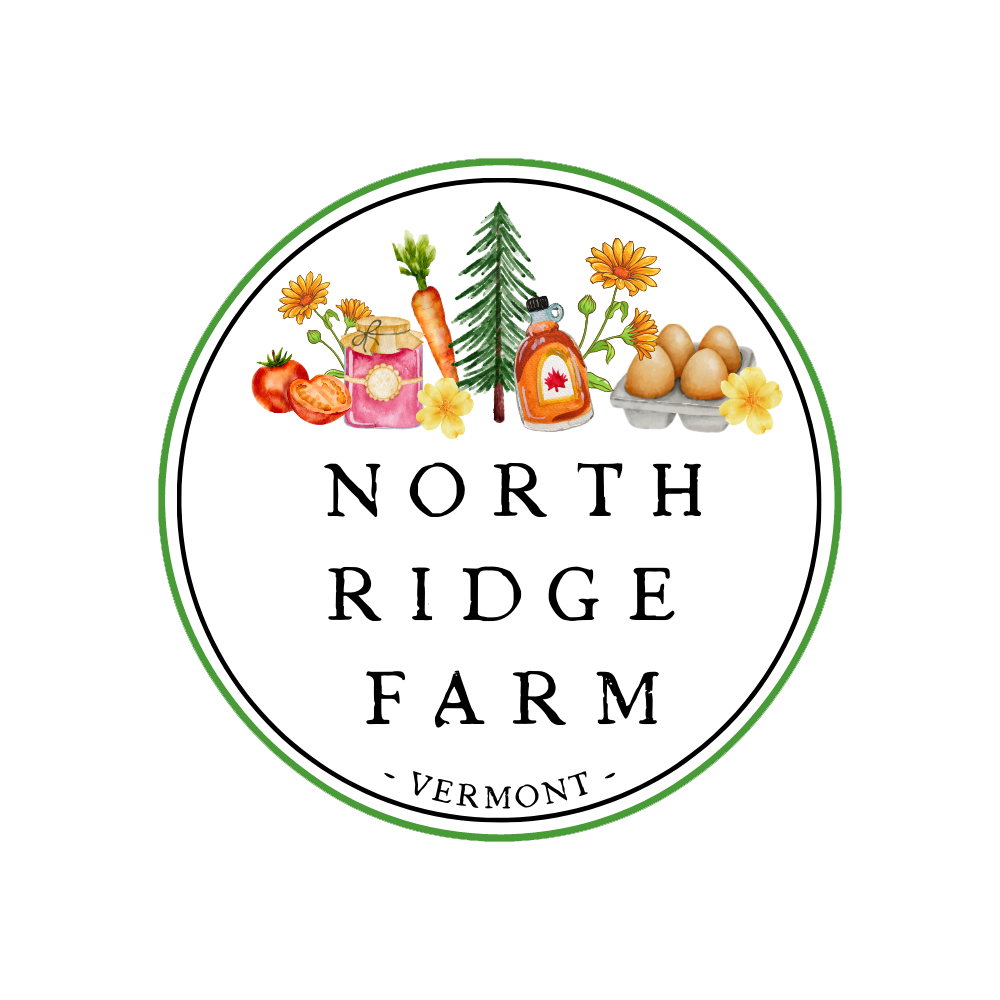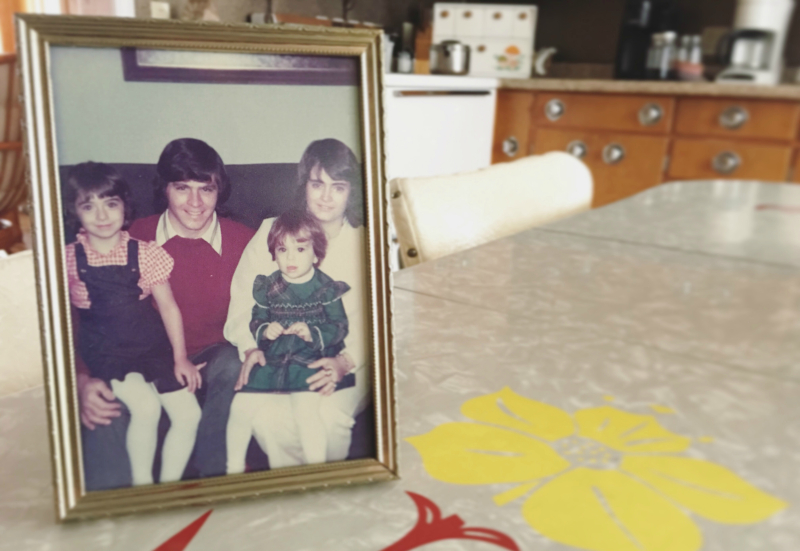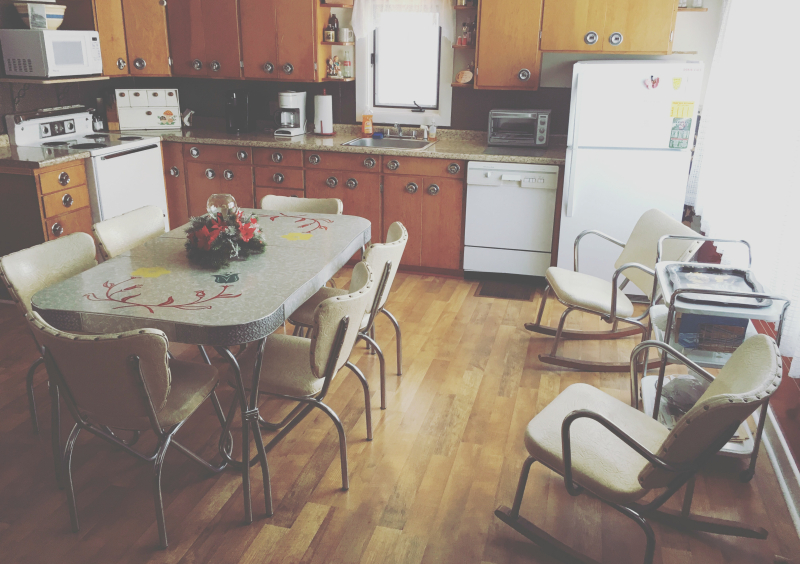Maybe it’s my age, maybe it’s that I’m finally paying attention, but lately I’ve been struck by how unique my paternal family roots are. At least in this day and age. Not unique in a way that is grand or consequential, but unique in its utter plainness and steadfastness. Both of my father’s parents (and earlier generations, too) are from a small town in northern Maine that by lower 48 standards, is about as remote as you can get. Located two hours from the nearest highway, life there is unlike what most people in this country experience. Of course, in the age of internet and smart phones, it is slightly more integrated today than in decades past, but not by much.
When people learn where my parents live, and of my father’s extended family still making up much of the town’s three digit population, they inevitably ask, “What do they do for work?” It’s a fair question, given the isolated locale, but I can’t help notice that while it’s not a place of booming industry, and people are definitely not moving here for opportunity, there does seem to be a steadiness in livelihood. As remote as it is, combined with the few surrounding equally-remote towns, it makes sense to have certain infrastructure in place: a branch of the state university, a medical center, nursing homes, libraries, schools, automotive repair shops, police… they’ve even got one of those medical marijuana dispensaries. And let’s not forget the paper mills and logging companies, which of course settled the region into modern era over a century ago. Up and down the east coast you’ll find the remains of various mills, most of which have been closed for decades. But here, many of the mills still run, and with operating mills, comes jobs. So my answer to people who ask what my family does for work remains: in generations past they were mostly trappers, mill workers, farmers, and loggers; today they are also police officers, teachers, nurses, mechanics, electricians, and more. Granted, the resources and infrastructure that I speak of are very small scale, reflecting the population, but just because they are two hours from the highway does not mean they are two hours from a Ford dealership, or from taking a college class (let alone teaching a college class). Although if you want a mall or anything like that, you're heading south for three hours to Bangor.
Because I do not want to romanticize the sometimes hard and lacking nature of rural life, it is worth noting that people are not moving to the area for lavish opportunity, and certainly many leave for greener pastures. My own grandparents did back in the 1940s, hence my father (and me) arriving in Connecticut. But those who remain seem to be able to fashion a fairly comfortable life for themselves. And by my own cursory observation, I’d say they’re doing it in a more secure way than those living in less remote, but still rural locations. It’s almost as though extreme remoteness forces people to create a local economy, whereas “sort of” remote finds people dependent on resources that are close enough for the occasional need, but not close enough for day to day employment. I also don’t want to underemphasize the paper and logging industry borne from the vast wilderness of northern Maine; this is the sort of thing that many northern Vermonters (for instance) would love to have job access to, but for them such opportunities are fading. There is more to say about all of this, of course, but really I’m just thinking out loud here and my rudimentary insight into this rural poverty feeling less dire than that rural poverty definitely lacks in expert opinion. These are just the things that I think about when spending ten hours in the car. Maybe some of you can relate to what I’m referring to and understand.
Anyway. Everything about my father’s family comes from this place, I think this is what I find so unique. It feels uncommon to have such a deep connection to a place, not just for part of our family, but for its entirety.
Of his two sets of grandparents, only dad’s paternal grandparents’ home remains in the family today, owned by himself and his three brothers. Not much has changed in Memere's kitchen or surrounding home in my 44 years on this earth. Many of her belongings are still here: family photos (that’s little me in the green dress up there), dishes in the cupboard, books on the shelves, crucifixes above most doorways, furnishings, and postcards from friends. The family bible. I realize this makes it sound like the home is preserved as some sort of awkward shrine, but I promise it does not feel that way. It just feels like Memere got it right the first time so there is no need to alter the home she created. Dad and my uncles take great care to "update" only what is necessary for maintaining the integrity of the home, and for accommodating how they use it today, while staying mindful of preserving the family story. It's a pretty special place.
We pulled into the driveway of Memere’s house after spending Christmas day over at Mom and Dad’s place on the lake. The water is frozen well enough for snow machines, but a few weeks out from strengthening to support the crossing of vehicles. Soon enough. Before going inside, Adam walked next door to Aunt Ruth’s house to pick up a box of moose meat cousin Tim left on the porch for us. After a quick hello, Adam left just as soon as he came, and Aunt Ruth turned out the kitchen light and went to bed. It was nearly 6pm after all, and not much happens in Eagle Lake after 6pm.
The next morning we left town, stopping at Dean’s for breakfast. Everybody stops at Dean’s. We had the same waitress as the last time we visited. There is one long table down the center of the restaurant where locals gather family style. The conversation is always in French. I’m reminded of my own father’s native language, and how as a little girl when I would tell my friends that Dad spoke French before he spoke English, they’d look at me (in our very homogenous neighborhood) as if he’d come from a different world. And the truth is, one trip to Eagle Lake will tell you… yes, his people really do come from a different world.
Tonight we are back in Connecticut, and there will be moose meat shepherd's pie for dinner.


